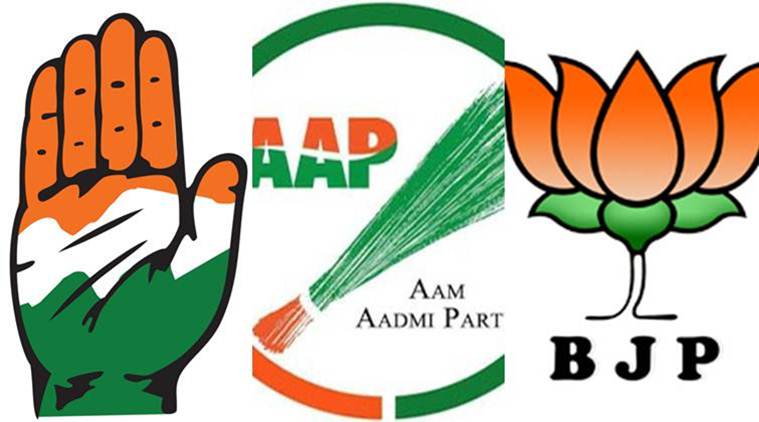Complex permutations to decide Goa’s truncated political landscape
Who will rule over India’s tourist paradise—the tiny state of Goa—when it goes to polls on February 4 to elect 40 members of the legislative assembly? Torn by an internal feud and a tussle with the ideological fountainhead, the Rashtriya Swayamsevak Sangh (RSS), the ruling BJP has its task cut out in the polls as the state witnesses a multi-cornered contest.
With tourist inflow into Goa increasing by the year, Goa has enough reason to be happy. However, this does not make for a banner headline. Four years of BJP rule in Goa did not make regular front page news either. But, there is a political void today in the state, after Subhash Velingkar—former state head of the Rashtriya Swayamsevak Sangh (RSS), the BJP’s ideological parent—rose against the ruling party.
Who is Velingkar? A former teacher, Velingkar has several awards to his credit. He had mentored BJP leaders, such as former chief minister, Manohar Parrikar and his successor Laxmikant Parsekar. However, he was sacked by the RSS last August after he had claimed that the Bharatiya Bhasha Suraksha Manch (BBSM), which he had co-founded in 2011, would form a political party to take on the BJP in the election.
He is not a rebel without a cause. Velingkar is firmly opposed to grants to around 130 English-medium primary schools. Initiated by the previous Congress government, the funding involves a onetime special grant of INR 1.2 million in addition to INR 100,000 annually for the next five years. The ruling BJP government failed to implement an electoral promise it had made during the 2012 election to reverse this decision.
Velingkar is keen to promote schools teaching either Konkani or Marathi as they are Goa’s official languages.
Neither Manohar Parrikar nor Laxmikant Parsekar has reversed the decision. This would have alienated churches and Christians who form more than a quarter of the state population. But, it is important to note that Velingkar’s outfit had helped the BJP in winning 21 out of the state’s 40 assembly seats in 2012.
Velingkar, who has vowed to finish off BJP, has launched the Goa Suraksha Manch (GSM) and has joined hands with the Maharashtrawadi Gomantak Party (MGP) and the Mumbai-headquartered Shiv Sena. Interestingly, MGP had allied both with the Congress and the BJP in the past. Former minister, Sudin Dhavalikar of MGP, the oldest regional outfit in Goa, is being projected as the chief ministerial candidate of this alliance.
This coalition steered by the rebel Velingkar, is certainly going to dent the prospects of the ruling BJP. But, greater damage will come from the Aam Aadmi Party (AAP), which has been quick to realise the political vacuum in Goa since the rise of Velingkar. Its leader and Delhi’s chief minister, Arvind Kejriwal has been frequenting Goa over the last six months in an effort to mobilise support.
According to reports from Goa, AAP is better prepared among all the parties and is reaching out to people in every village and ward through an army of volunteers. It is contesting the election under an honest and popular bureaucrat, Elvin Gomes.
The elections will also test the Goa Congress president, Luizinho Faleiro’s leadership. The Congress has undertaken door-to-door visits, promising a clean government compared to the electoral blitzkrieg by the ruling BJP, focussing on the development plank.
Besides the four stakeholders—the BJP, the Velingkar-led alliance, the Congress and the AAP—in the electoral fray, a few regional outfits and independents will be crucial in deciding the formation of the next government in Goa.
Some of them include the newly-formed regional outfit, Goa Forward, headed by South Goa-based politician, Vijai Sardesai, the Atanasio Monserratte-led United Goan Party, the South Goa-based Goa Vikas Party (GVP) and the Goa Suraj Party (GSP).
In the 2012 assembly elections, Goans had cast their votes for five Independents and five regional party MLAs, together garnering close to 30 pc vote share.
In case of a hung assembly in Goa, as predicted by pre-poll surveys, the role and support of the winning regional outfits and independents will be crucial to the political stability of the state.










